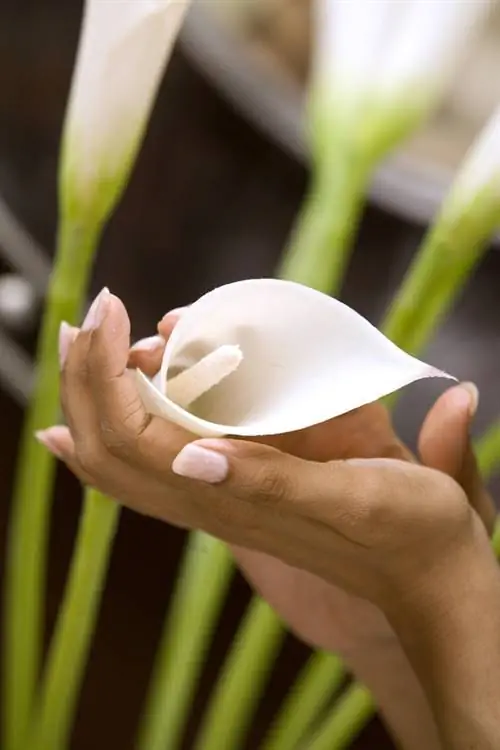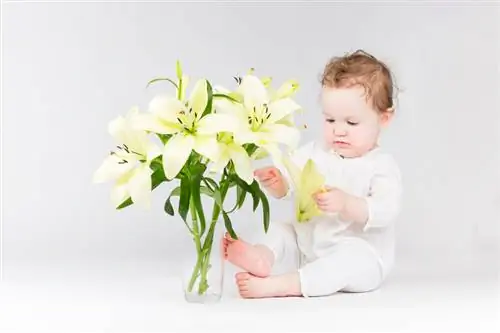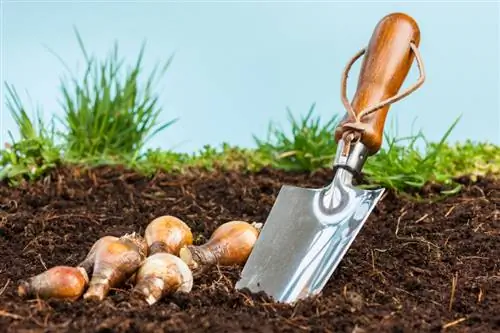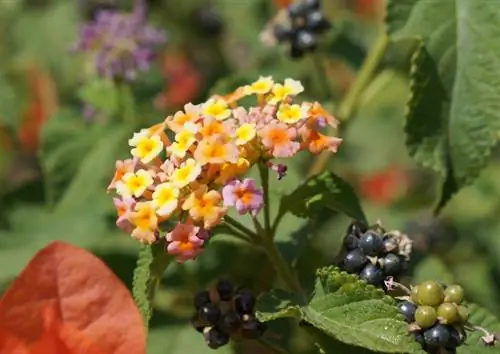- Author admin leonars@hobbygardeners.com.
- Public 2023-12-16 16:46.
- Last modified 2025-06-01 06:02.
As beautiful as the calla is, it is not the right flower for a household with children and pets. The plant parts contain a chemical substance that primarily attacks the mucous membranes.
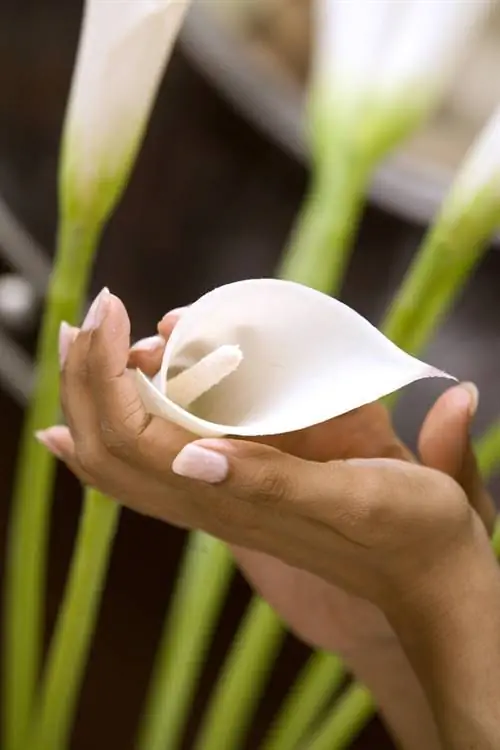
Is calla lily poisonous for households with children and pets?
The calla is a poisonous houseplant in which all parts such as leaves, flowers and sap are toxic. Contact can cause skin redness and hives, while swallowing the sap can cause diarrhea, fever and chills.
Calla - the poisonous houseplant
All parts of the plant are poisonous:
- leaves
- Flowers
- Plant juice
Contact with parts of the calla lily leads to severe skin redness and even hives. If the juice is swallowed, diarrhea, fever and chills may occur.
Wear gloves when grooming
When caring for your calla lilies, be careful not to touch the plant's bare skin. Protect your hands with gloves (€9.00 on Amazon).
Tips & Tricks
The flower not only secretes sap when cut, but also through the tips of the leaves. Therefore, place the indoor calla lily so that the sap does not drip onto furniture or the floor. This is especially important if children and pets are part of the family.

